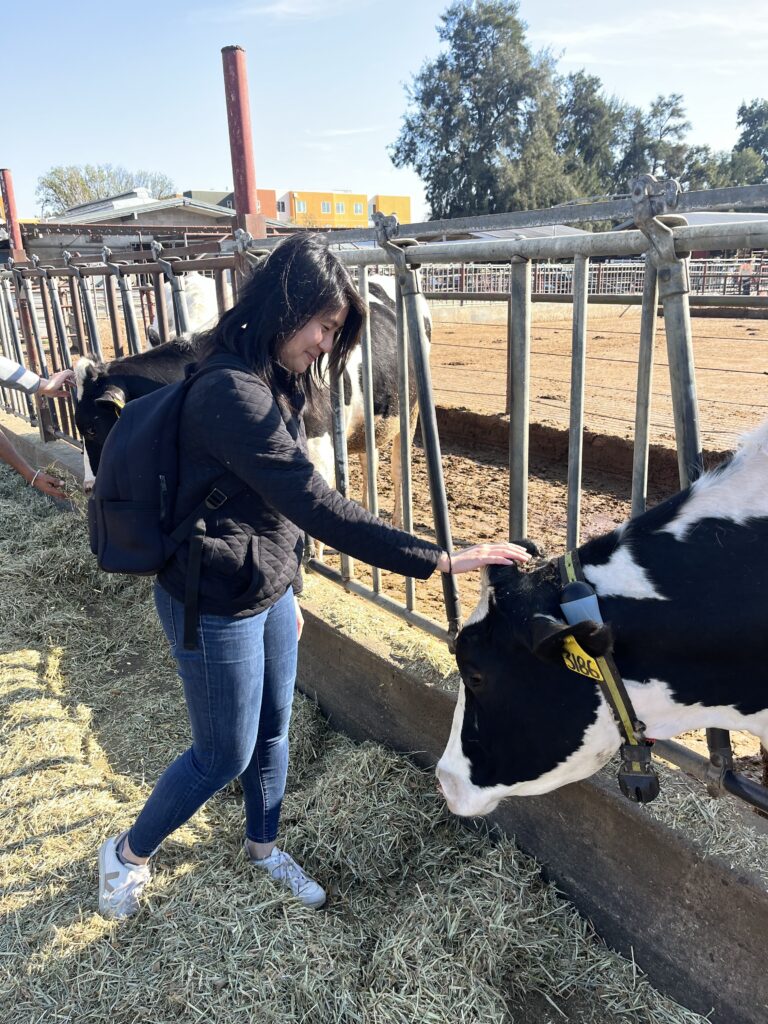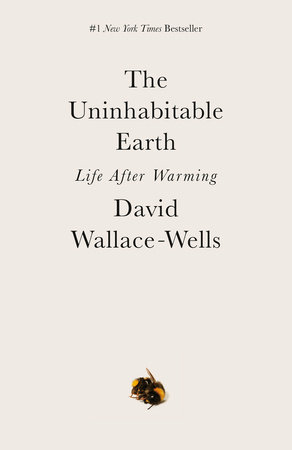
Investing
Evaline
Tsai, Ph.D.
As a Principal at Gigascale Capital, Evaline brings a deeply scientific and technical point-of-view to building climate solutions.
She most recently spent two years at Fine Structure Ventures, where her investments included Commonwealth Fusion Systems, Boston Metal, Debut Biotech, Phytoform, and Hoxton Farms. Before becoming an investor, Evaline founded a Y-Combinator-backed healthcare company; was the first product manager on machine learning at Samsara; and published multiple journal articles spanning experimental, theoretical, and applied research in climate tech and biotech.
Evaline completed a Ph.D. at the University of Cambridge in Chemical Engineering and Biotechnology.
closeThe Journey from Lab to Startup and Beyond
Evaline discusses her shift from academia to entrepreneurship, the challenges Ph.D. founders encounter, and current climate tech trends with Kristen, Gigascale’s Head of Communications.
You have an interesting background as a Ph.D. who started a company and became an investor. Tell me about your journey.
My academic background is in chemical engineering, which is a pretty broad discipline. I focused on a variety of things like computational modeling for CO2 sequestration, materials for making concrete more sustainable, and photocatalysts for converting CO2 into useful products. Eventually for my PhD at Cambridge, I wanted to get more exposure to materials and biology, so I focused on nanosensor applications in biotech.
During my PhD, I realized I wanted to apply my science background in a way that could have a much bigger impact. I started joining entrepreneurial clubs and meeting other people on campus who had similar interests and were also a little frustrated with how slow research can be. That’s how I met my future co-founders. We ended up brainstorming ideas that eventually became our startup, Cambridge Cancer Genomics and got into YC based on the concept. Through the accelerator we were able to raise money and start building. I was in charge of the product, which meant spending a lot of time getting to know our customers, understanding what they would find helpful, and translating that into actionable things we could deliver.
After the startup, I wanted to get growth stage experience and went to Samsara as the first product person on machine learning. I eventually made my way into venture capital as I had always been curious about investing. My favorite part of doing a PhD was literature review, which at a high level is similar to the work I now do in climate investing—reading about different technologies and figuring out what is the most promising.
How did you find your way to working in climate tech at Gigascale?
I’ve always been interested in the environment and sustainability, and when I was working in general deep tech investing, I saw the trend that a number of technical innovations from other sectors were being applied to climate change and saw the potential for massive exponential adoption of greener, cleaner solutions so shifted my work to fully get back into climate.
Now, at Gigascale, I get to use my venn diagram of experiences – being a PhD, founding an early-stage startup, scaling products at a larger company – to support other technical and scientific founders who want to have an impact. Day to day, I pressure test the science and engineering underpinning various solutions and get to work with founders, which is the best part for me.

It’s unique in climate tech space for the investment team to have founder experience. Why is that essential?
We’ve all been there in some way or another, and have probably made every mistake in the book. Many of our founders are doing things for the first time which means they’ll get it wrong before they do it right. So having the thought partnership of people around you who know what it’s like and can lend informed and actionable advice only helps you get to the right answer faster. Also, as someone who was a scientist in the lab and then started a company, I’m also able to connect to the experience of PhDs and postdocs who are on the founder journey for the first time and might be less familiar with entrepreneurship or the venture ecosystem.
What are common things you work through with Ph.D.s who want to start a company?
A universal thing is around building commercial awareness. You need to take off the PhD hat and put on the founder hat, which means you’re no longer trying to make something that’s the most scientifically interesting or novel. Instead, I coach a lot on what it means to scale a technology.
There tend to be a couple of types of PhDs who become founders. There’s the person who loves science fundamentally and thinks about it 24/7. They’re the one who will toil in the lab seven days a week to get the technology to where it needs to be. As a co-founder, this person makes for a great Chief Technology Officer and they need to build their awareness around what it looks like to scale technology and the team together.
The other type of founder is kind of more like me, and might have done a PhD program less for the love of science and more because they want to use science for impact. This person tends to be more entrepreneurial and becomes the CEO, for example. They’re getting close to the customer to understand what they’ll actually buy, building the company, and driving the milestones and metrics.
A partnership between these two types can be really strong because both deeply understand the science and can approach scaling in different ways.

Do first-time scientific founders face different hurdles than repeat founders?
In some ways yes, and usually it’s because they’re being evaluated for different things.
When investors look at the PhD founder, they want to see an ability to grow into a CEO. How will this person function in a leadership role? Can they manage relationships with customers, land contracts, etc.
The serial entrepreneur is often evaluated for whether they can hire and lead a strong scientific or technical team. Even though these founders are coming from another industry and now working in climate tech and maybe scaling a very science-based innovation, for better or worse, raising money can be easier for them because people assume they can be successful again.

Any advice for first-time Ph.D. founders, or founders generally, about raising money?
I think it’s generally helpful to start by demystifying what investors are looking for, especially because there are so many high potential PhD founders who have less exposure and understanding of the venture capital world.
At Gigascale, we’re pretty thesis-driven, which means we’re looking at a sector and developing an opinion on a type of technology before going out to meet companies building those solutions. When we meet companies, like a lot of investors, we’re looking at the team, market, and technology.
We want to understand why the founding team is the best or one of the best in the world to solve a particular problem, see there’s a big market opportunity, and then get into the weeds of the technology and how it solves customer needs. That’s usually when I’m digging into techno economics (unit economics of the technology as it scales) and evaluating whether customers will adopt it.
The best founders I see are great at storytelling. Their ability to connect a technical product to the bigger picture and convey why you should care is important for recruiting and fundraising.
We also look at scrappiness, or what we like to call the “GSD” archetype. I like to see that even with a small amount of money, a team can run experiments, get to data, and hit the milestones they set.
Lastly, if it’s a PhD founder, I’m trying to gauge if they’re a good scientist, can build the technology, and as I mentioned if they have strong commercial awareness. This is usually me trying to understand how they think about hard problems, how well they know the field, and pressure testing their historical context of commercialization efforts in the sector. It’s critical they show understanding beyond just making the technology the most advanced, but speaking to how someone will use it and what it looks like at scale.
When it comes to fundraising, it’s really beneficial to find an investor who will become your champion. This is often your first check-in, and they can help guide you on which investors to include and prioritize in your syndicate. Investors have different strengths they can bring to the table to aid the company-building process, and some have strong brands that are a useful signal for attracting talent. Look for investors who are strong thought partners because after writing the check, they can make an impact on the business in a variety of ways.
Any climate tech you’re particularly excited about?
I’m keeping an eye on electrochemistry and synthetic biology. Electrochemistry is largely due to the growth of electrification, with companies like Dioxycle converting carbon emissions into a useful chemical or fuel. Other companies are trying to use electrochemistry to improve mining processes. All of this is enabled by cheaper renewable electricity that’s allowing these types of applications to be economically viable for the first time.
Synthetic biology is a big driver for climate solutions for a couple of reasons. Sequencing and DNA or RNA synthesis costs have gone down dramatically in the last decade because computation has improved greatly. Put this all together and you see companies like Pasture Biosciences, which is developing vaccines to reduce enteric emissions from cattle. Because of COVID, the manufacturing costs for vaccines have dropped dramatically, and that makes it possible for an application outside of healthcare, in this case agriculture, where things need to be much cheaper to gain meaningful traction.
Generally, both electrochemistry and synthetic biology are examples of technology that scaled in another sector and are now being applied in climate tech, which is an angle I love investing in.


